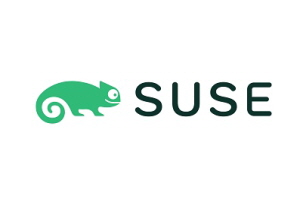혁신·개방·안전을 지향하는 엔터프라이즈급 솔루션의 글로벌 리더 수세(SUSE)가 ‘Adaptive Telco Infrastructure Platform (ATIP) 3.1’의 GA(general Availability) 버전을 발표하며, 통신사들의 고민인 Project Sylva 사양 준수와 통신사들이 직면하는 문제를 해결하고, 통신사 비용 절감에 본격 나섰다.
ATIP 3.1 GA 버전 발표, 높은 성능 안정적 유지
고객 램프업 대폭 단축·통신 네트워크 성능 보장

혁신·개방·안전을 지향하는 엔터프라이즈급 솔루션의 글로벌 리더 수세(SUSE)가 통신사들의 고민인 Project Sylva 사양 준수와 통신사들이 직면하는 문제를 해결하는 첨단 솔루션을 통해 기술적 난제를 해결하고, 통신사 비용 절감에 본격 나섰다.
수세는 최근 ‘Adaptive Telco Infrastructure Platform (ATIP) 3.1’의 GA(general Availability) 버전을 발표했다고 28일 밝혔다.
ATIP 3.1을 사용하면 높은 성능을 안정적으로 유지할 수 있으며, 개선된 관리 효율, 유연성, 장기 지원 등의 이점을 확보할 수 있다.
엣지 애플리케이션이 5G 워크로드, 브로드밴드 접근 네트워크 기능 등을 호스트할 수 있게 되면서, 많은 통신사가 비용을 억제하고 수익 창출 시간을 단축해야 한다는 압박을 받고 있다. 동시에 기술적 문제에 가로막혀 엣지의 이점을 완전히 실현하는 데에도 어려움을 겪고 있다.
ATIP 3.1은 가상화 및 컨테이너 기반 네트워크 기능을 호스트하기 위한 오픈 소스 공통 경량 통신사 클라우드 계층을 제공하며, 이를 통해 운영 효율성을 개선하고 통신사가 부담하는 비용을 절감할 수 있다. 또한 다양한 산업 분야 내 새로운 유형의 고객에게도 성능과 서비스 품질을 보장하는 통신사 및 엣지 서비스가 가능한 공통 오픈 소스 컨테이너 기반 서비스(CaaS) 플랫폼을 지원해 혁신 주기를 단축하고 고객 기반을 확장할 수 있다.
아울러 수세 ATIP 3.1은 CaaS 계층과 엣지 상호 운용성을 지원하기 위한 통신 업계 간 노력의 산물인 Project Sylva에 처음부터 기여해왔으며, Project Sylva 사양과 아키텍처 권장 사항을 그대로 따른다.
수세 엣지 사업부 총괄 매니저 키스 바실(Keith Basil)은 “수세 ATIP 3.1은 통신 서비스 제공업체가 단일 통합 코어 스택, 단일 툴체인, 단일 기술 접근법을 채택해 클라우드 마이그레이션의 이점을 실현할 수 있도록 설계된 엣지 컴퓨팅 플랫폼으로, 통신 서비스 제공업체에 최적화됐다”며 “ATIP는 통신 워크로드에 요구되는 엄격한 성능 요건을 지원하며 CSP가 향후 클라우드 네이티브 통신 네트워크를 제공할 최고의 벤더를 자유롭게 선택할 수 있는 개방적이고 유연한 플랫폼”이라고 설명했다.
수세 ATIP 3.1은 CSP 및 벤더의 생태계에 맞춰 검증 아래 설계됐다. 유연하고 통신사에 최적화된 플랫폼을 제공하며, ARM과 인텔 플랫폼을 모두 지원한다. 검증된 설계는 고객의 램프업(ramp-up) 타임을 획기적으로 개선하고 통신 네트워크의 성능을 보장한다.
또한 OS에서 애플리케이션에 이르기까지 전체 통신사 클라우드 스택을 쉽게 배포하고 완전히 자동화된 방식으로 운영하도록 설계됐다. 또한 ATIP 3.1은 24개월 장기 지원을 제공한다.
ATIP는 수세가 기존 플랫폼에 적용해왔던 가속화·통합된 위험 관리 기능과 인증을 기반으로 한다. ATIP의 규정 준수 및 보안 기능은 구성과 제공, 거버넌스에 모범 사례를 적용함으로써 가치를 확장한다.
이외에도 수세는 티어 1 네트워크 장비 조직의 공급업체로 10년 이상 활동해 왔다. 수세는 안정적이면서도 높은 성능의 엣지 런타임, 그리고 엣지 컴퓨팅을 위해 특별히 구축한 컴포넌트를 갖춘 소형화 엣지 스택 설치 공간을 제공한다.
더불어 업계 표준이면서도 특정 공급업체에 종속되지 않는 API를 사용해 GitOps 기반 인프라 및 구성 관리를 수행하며, 이로 인해 설비 투자 대비 수익률이 뛰어나다.
한편 수세는 최근 쿠버네티스(Kubernetes) 및 컨테이너(Containers) & CaaS 계층의 5G 클라우드 네이티브 플랫폼을 다룬 ABI 리서치 경쟁력 순위(ABI Research Competitive Ranking) 보고서에서 리더로 선정됐다. 보고서에 따르면 수세는 통신 업계의 현재 요구 사항을 충분히 이해하고 있음은 물론, 쿠버네티스 플랫폼에서 뛰어난 성과를 이룬 최고의 ‘구현 기업’이자 ‘혁신 기업’이다. 아울러 자동화된 워크로드, 사용자 친화성, 플랫폼의 확장성을 동시에 갖췄으며, 이를 통해 통신 서비스 제공자(CSP)에게 혁신적인 솔루션을 공급하고 있다.
 혁신·개방·안전을 지향하는 엔터프라이즈급 솔루션의 글로벌 리더 수세(SUSE)가 통신사들의 고민인 Project Sylva 사양 준수와 통신사들이 직면하는 문제를 해결하는 첨단 솔루션을 통해 기술적 난제를 해결하고, 통신사 비용 절감에 본격 나섰다.
혁신·개방·안전을 지향하는 엔터프라이즈급 솔루션의 글로벌 리더 수세(SUSE)가 통신사들의 고민인 Project Sylva 사양 준수와 통신사들이 직면하는 문제를 해결하는 첨단 솔루션을 통해 기술적 난제를 해결하고, 통신사 비용 절감에 본격 나섰다.